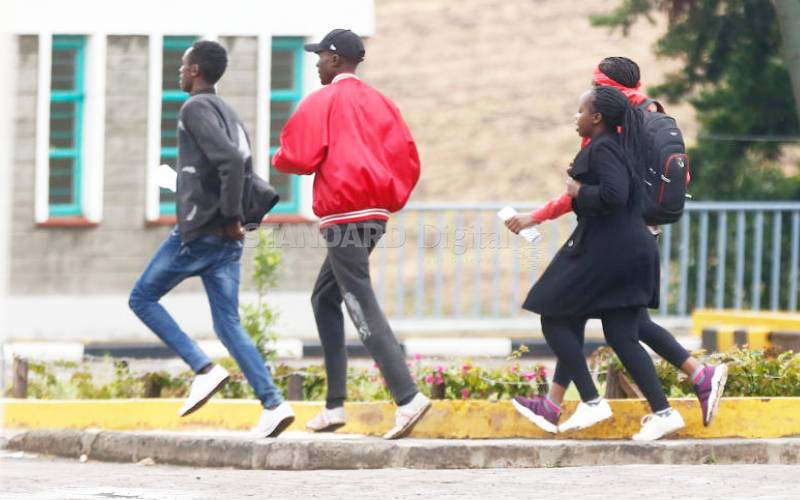×
The Standard e-Paper
Kenya’s Boldest Voice

Letting criminals to ride roughshod over these young men and women is a dereliction of duty on the part of universities and the government.
The burning of University of Nairobi (UoN) hotels by students protesting the bludgeoning to death of their colleague, allegedly by the institution’s guards, once again raises questions about the security of students in our institutions of higher learning.